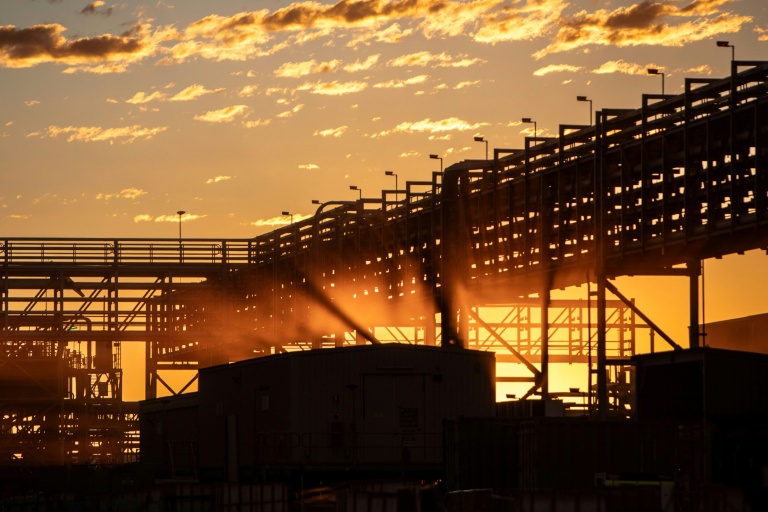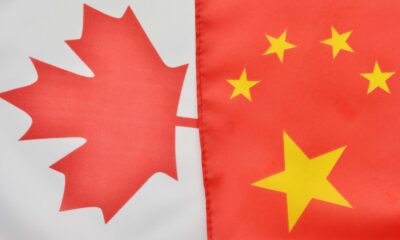World
G7 Energy Ministers Confront China’s Critical Mineral Dominance

The G7 energy ministers will gather in Toronto, Canada, on March 15 and 16, 2024, to address the urgent challenge posed by China’s dominance in the critical minerals market. This meeting aims to enhance access to essential resources that underpin future technologies, as the industrialized democracies recognize the need for more reliable supply chains.
China currently controls a significant portion of the global supply of critical minerals, which are vital for manufacturing products ranging from solar panels to advanced military equipment. The G7, which includes leading economies such as the United States, Canada, and Germany, has expressed growing concern over this dependency. This concern was echoed by U.S. President Donald Trump during a recent meeting with Chinese leader Xi Jinping, where a rare earths agreement was established, stipulating annual renegotiations.
The impetus for this meeting traces back to a G7 summit held in June 2023, where leaders launched a “Critical Minerals Action Plan” aimed at diversifying supply chains to bolster national and economic security. Tae-Yoon Kim, head of the critical minerals division at the International Energy Agency, emphasized the risks associated with the concentration of mineral refining in a single country, stating, “The high concentration of critical minerals refining in a single country creates economic and national security risks.” He urged the G7 to begin shifting market power away from China to prevent a supply shock reminiscent of the oil crises of the 1970s.
Addressing Market Manipulation and Supply Chain Transparency
Concerns about China’s market practices have intensified, particularly regarding its non-adherence to free market principles. While many countries possess substantial mineral reserves, China’s strength lies in its processing capabilities, especially for rare earths, which are crucial for high-tech applications. As a result, China has the ability to manipulate global supply by controlling stockpiles through its state-owned enterprises.
Canada’s Energy Ministry has indicated that the Toronto meeting will feature announcements aimed at countering market manipulation. Abigail Hunter, executive director of the Washington-based Center for Critical Minerals Strategy, remarked, “For decades, we’ve been facing a competitor who has very consistently distorted free markets.” Canadian Energy Minister Tim Hodgson described the gathering as a “hinge moment,” highlighting the critical nature of the discussions.
While the G7 nations share a unified concern regarding supply security, differing energy policy priorities among member states could complicate efforts. The Trump administration’s approach has been characterized as less focused on transitioning to clean energy. Hunter noted that the G7 must address the issue of traceability within the critical minerals supply chain, ensuring that raw materials are tracked from mining to refinement and that suppliers comply with global market rules.
Urgency for Action and Future Collaboration
Hunter emphasized the necessity of developing policies that enhance transparency and traceability, particularly in the context of Chinese-controlled companies that dominate the supply chain. The G7’s response to these challenges will be closely watched, as stakeholders hope for concrete actions to address the opaque nature of current practices.
“There is a short window of opportunity to fix this,” Hunter warned, reflecting on the urgency of the situation. “The window is still open — it’s just very, very small.” As the G7 energy ministers convene, the outcomes of their discussions will set the stage for future collaboration aimed at ensuring that the minerals essential for modern industries are sourced from countries that align with democratic values.
This meeting represents a critical step in reshaping the global landscape of critical minerals, with the potential to influence economic and national security for years to come. The G7’s commitment to addressing these issues will be pivotal in promoting a fair and sustainable minerals market in the face of growing geopolitical tensions.
-

 World3 months ago
World3 months agoScientists Unearth Ancient Antarctic Ice to Unlock Climate Secrets
-

 Entertainment4 months ago
Entertainment4 months agoTrump and McCormick to Announce $70 Billion Energy Investments
-

 Lifestyle4 months ago
Lifestyle4 months agoTransLink Launches Food Truck Program to Boost Revenue in Vancouver
-

 Science4 months ago
Science4 months agoFour Astronauts Return to Earth After International Space Station Mission
-

 Technology2 months ago
Technology2 months agoApple Notes Enhances Functionality with Markdown Support in macOS 26
-

 Top Stories3 weeks ago
Top Stories3 weeks agoUrgent Update: Fatal Crash on Highway 99 Claims Life of Pitt Meadows Man
-

 Sports4 months ago
Sports4 months agoSearch Underway for Missing Hunter Amid Hokkaido Bear Emergency
-

 Politics3 months ago
Politics3 months agoUkrainian Tennis Star Elina Svitolina Faces Death Threats Online
-

 Technology4 months ago
Technology4 months agoFrosthaven Launches Early Access on July 31, 2025
-

 Politics3 months ago
Politics3 months agoCarney Engages First Nations Leaders at Development Law Summit
-

 Entertainment4 months ago
Entertainment4 months agoCalgary Theatre Troupe Revives Magic at Winnipeg Fringe Festival
-

 Top Stories6 days ago
Top Stories6 days agoFamily Remembers Beverley Rowbotham 25 Years After Murder















